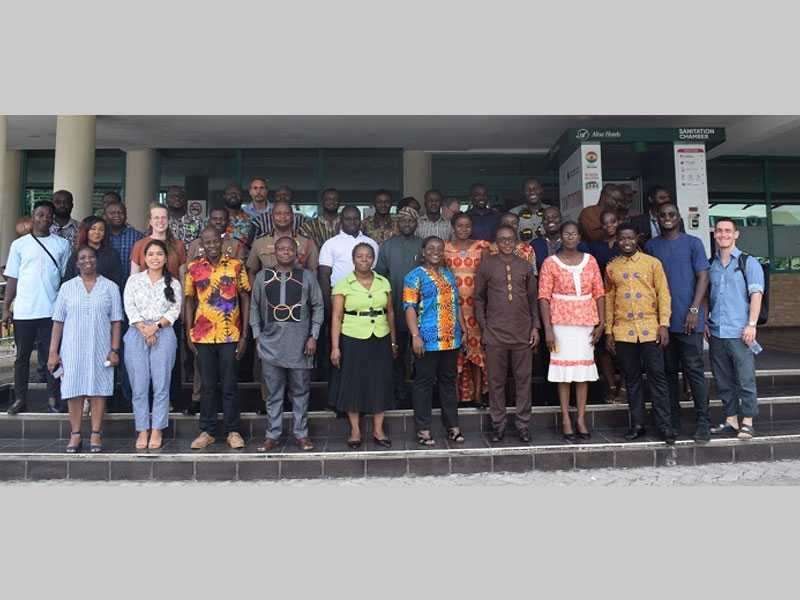Read in
By Francis Dabre Dabang
Bolgatanga — The two-day workshop to support smallholder farmers to adapt modern technologies to enable them to improve upon their crop yields ended at Bolgatanga, capital of the Upper East Region last Wednesday.
Organised by the Feed the Future Ghana Market Systems and Resilience (MSR) Activity, it brought together participants from both private and public institutions to dialogue on increasing agricultural related policy implementation.
Speaking at the forum which attracted about 60 participants drawn from various private and public organisations in the region, the Enabling Environment Team Lead, Samson Konlan, said the project was tailored on building the capacities of the out-grower businesses to provide quality services to smallholder farmers.
“We are strengthening the out-grower networks so that they will reach out to the smallholders on services required for their growth,” Mr Konlan stated.
According to him, the MSR Activity was a five-year project that was implemented to scale up the good outcomes of defunct projects such as USAID Advance one and two, respectively, adding the project was ‘deliberately’ working on stimulating commercialisation and profitability of the smallholder farmer.
This, he said, would enable them to access ready market for their produce, as it was the mandate of the project to assist farmers, especially those selected by the Zone of Influence (ZOI), with the needed financial services, explaining, “We want to improve the system by working on what already exists to strengthen business”.
The Feed the Future MSR Activity is a five-year USAID funded activity to increase inclusive agriculture-led economic growth in northern Ghana.
The project which leveraged over a decade of experience linking smallholder farmers to markets, inputs and services in Ghana, had also played an undisputable role in strengthening commercial relationships between market actors, improving rural entrepreneurship ecosystem to enable greater market participation, especially for women and youth.
Mr Konlan appealed to stakeholders, especially the Ministry of Food and Agriculture (MoFA), the Food and Drugs Authority (FDA), the Ghana Standards Authority, among other regulatory authorities, to do well to support the organisation implement the MSR project, since it would inure to the benefit of the rural farmer.
The project, he said, if fully implemented would in no doubt tackle the issue of difficulties in commercialising agriculture in the northern part of Ghana, and also resolve the hunger phenomenon amongst the people from the underserved communities.
On his part, the Director for Monitoring, Evaluation and Learning (MEL), Eric Sunu, noted that the Public Private Dialogue (PPD) would aid establish mutual relations and trust among stakeholders and promote agribusiness market performance.
In his considered view, it would also catalyse action among market actors for an improved enabling environment to drive an inclusive agricultural-led economic growth in northern Ghana.



